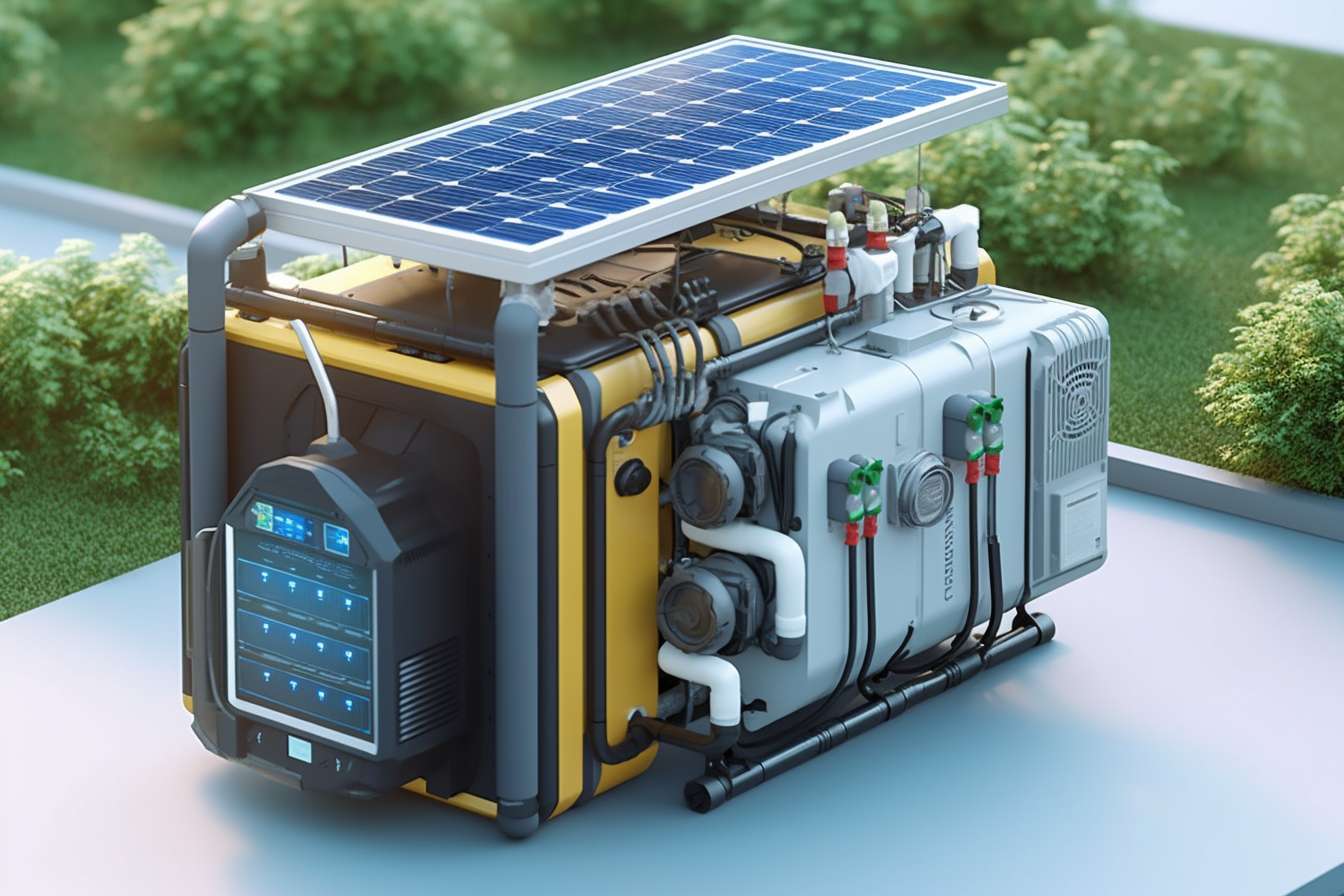Exploring Sustainable Home Energy Solutions in Ghana
Harnessing the power of the sun, solar generators and autonomous kits are transforming energy use in Ghanaian households. With options ranging from portable power stations to advanced 10,000W autonomous solar kits, families enjoy reliable, eco-friendly energy. These solutions offer sustainable power for everyday needs, making them ideal for both apartment balconies and larger home installations.

Understanding Solar Energy Solutions
Solar energy solutions have become increasingly accessible and varied, catering to diverse household needs in Ghana. The range of products available includes portable power stations, ideal for individuals or families seeking mobility and flexibility. These units are compact and easy to transport, making them perfect for short trips, camping, or providing backup power during outages.
On the other end of the spectrum are advanced autonomous solar kits, such as 10,000W systems. These comprehensive kits are designed to power entire households, supporting multiple appliances and providing a stable energy source. They are particularly suitable for larger homes or those located in areas with limited access to the national grid.
In between these options are mid-range solutions like rooftop solar panels and integrated battery storage systems. These are ideal for homeowners looking to reduce their reliance on traditional electricity sources while minimizing their carbon footprint. By capturing sunlight and converting it into usable energy, these systems provide a steady and sustainable power supply.
Benefits of Solar Energy for Households
Adopting solar energy systems offers numerous benefits for Ghanaian households. One of the primary advantages is reliability. Unlike traditional power sources that may be subject to fluctuations and outages, solar energy provides a consistent and dependable supply. This reliability is crucial in regions where power cuts are frequent, ensuring that homes remain functional and comfortable.
Eco-friendliness is another significant benefit. Solar energy is a clean, renewable resource that reduces greenhouse gas emissions and lowers the carbon footprint of households. By switching to solar, families contribute to environmental conservation efforts, helping combat climate change and pollution.
Cost-effectiveness is also a key factor driving the adoption of solar solutions. Although the initial investment may be higher than conventional energy sources, the long-term savings are substantial. Solar power reduces or even eliminates monthly electricity bills, and many systems have a lifespan that extends over two decades. Additionally, incentives and tax rebates can further offset installation costs, making solar an economically attractive option.
Choosing the Right Solar Solution for Your Home
Selecting the right solar solution involves considering several factors. First, assess your household’s energy requirements. This includes evaluating the number of appliances, devices, and their power consumption. Homes with high energy needs may benefit from larger systems like the 10,000W kits, while smaller homes or those with minimal energy consumption might find portable stations sufficient.
Space availability is another crucial consideration. Roof-mounted solar panels require adequate space and optimal positioning for maximum sunlight exposure. For those with limited roof space, ground-mounted systems or solar panels integrated into building designs may be viable alternatives.
Budget constraints also play a role in decision-making. It’s important to balance upfront costs with long-term savings. Many solar providers offer financing options or payment plans to make the transition more affordable.
Lastly, consult with professionals to ensure proper installation and maintenance. A certified installer can conduct a thorough site assessment and provide tailored recommendations, ensuring that a solar system operates efficiently and effectively.
Future of Solar Energy in Ghana
The future of solar energy in Ghana is promising, with potential growth driven by increasing demand for sustainable power solutions. As more households adopt solar technology, the collective impact on the national energy landscape is significant. The shift towards renewables can enhance energy independence, reducing reliance on imported fuels and stabilizing energy prices.
Policies and initiatives also play a pivotal role in shaping the future of solar energy. Supportive measures, such as subsidies, tax breaks, and investment in infrastructure, can accelerate the adoption of solar systems. By fostering a conducive environment for innovation and development, Ghana can position itself as a leader in renewable energy within the region.
Furthermore, the social and economic benefits of widespread solar adoption are profound. Job creation in installation, maintenance, and manufacturing sectors can boost local economies, while improved energy access empowers communities and enhances quality of life.
In conclusion, solar energy solutions offer a viable and sustainable alternative for Ghanaian households seeking reliable and eco-friendly power. By understanding the available options, recognizing the benefits, and making informed choices, families can seamlessly transition to solar power. As Ghana embraces this renewable resource, the potential for a sustainable and energy-independent future becomes increasingly attainable. With the continuous evolution of technology and supportive policies, solar energy is set to play a crucial role in shaping a brighter, more sustainable future for all.
Disclaimer: All content, including text, graphics, images and information, contained on or available through this web site is for general information purposes only. The information and materials contained in these pages and the terms, conditions and descriptions that appear, are subject to change without notice.




